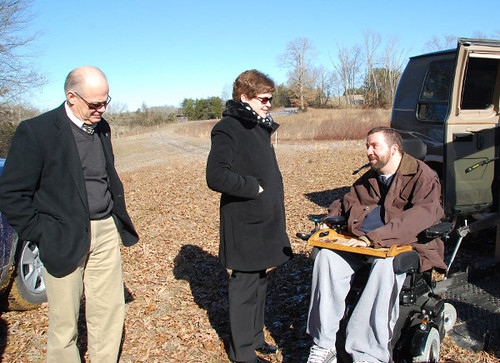
I would like to take a moment to recognize the hard work and dedication of America’s veterans. After serving our country so honorably, many of our veterans feel a sense of duty to continue to give back to the land they love and have fought so hard to protect. And we want all veterans to know about the many ways USDA can support military veterans and their families.
USDA offers incentives and other benefits for veterans interested in everything from farm loans to conservation programs to nutrition assistance to rural rental housing and home ownership opportunities. We also offer a wide variety of loans, grants, training and technical assistance to veterans who are passionate about a career in agriculture. That is why this fall, USDA and the Defense Department came together in an effort to enable every single one of the more than 200,000 service members who leave the military each year to access the training they need to start their own farms or ranch businesses.
USDA is here to help any veteran who is interested in caring for the land when they return home, whether they grew up in rural America or have relocated there. Since 2009, USDA has provided $443 million in farm loans to help more than 6,505 veterans purchase farmland, buy equipment and make repairs and upgrades to farm businesses.
Another program that has grown in popularity among veterans is our microloan program, which offers smaller amounts of support to meet the needs of small- or niche-type farm operations. USDA’s microloan program has provided more than $24.2 million in support to help 1,154 veterans grow their farming businesses since its launch in January 2013.
A U.S. Air Force veteran in Texas, Rebecca Markley, is using the microloan program to expand her family’s fruit and vegetable operation. Rebecca and her husband Bryan plan to start producing blackberries on their own land in order to boost their Community-Sponsored Agriculture customer base.
And last year in East Tennessee, I visited Jason Seaton, a disabled veteran and outdoorsman who dreamed of hearing the distinctive call of bob white quail on his farm again. Thanks to NRCS’ Environmental Quality Incentives Program and the help of local partners, Seaton has a comprehensive wildlife plan that has created healthier forests and handicap accessible trails on his land.
With such a strong demand for veterans to get into farming, the 2014 Farm Bill created a position within USDA for a Military Veterans Agricultural Liaison. Lanon Baccam, a military veteran who spent eight years in the U.S. Army and Iowa National Guard, now serves in this role and is ready to assist his fellow veterans. Our USDA staff across the country includes more than 11,000 veterans and we stand proudly alongside those who have served.
You can hear from veteran farmers in their own voice or find more information about opportunities for veterans in agriculture at www.usda.gov/veterans.
